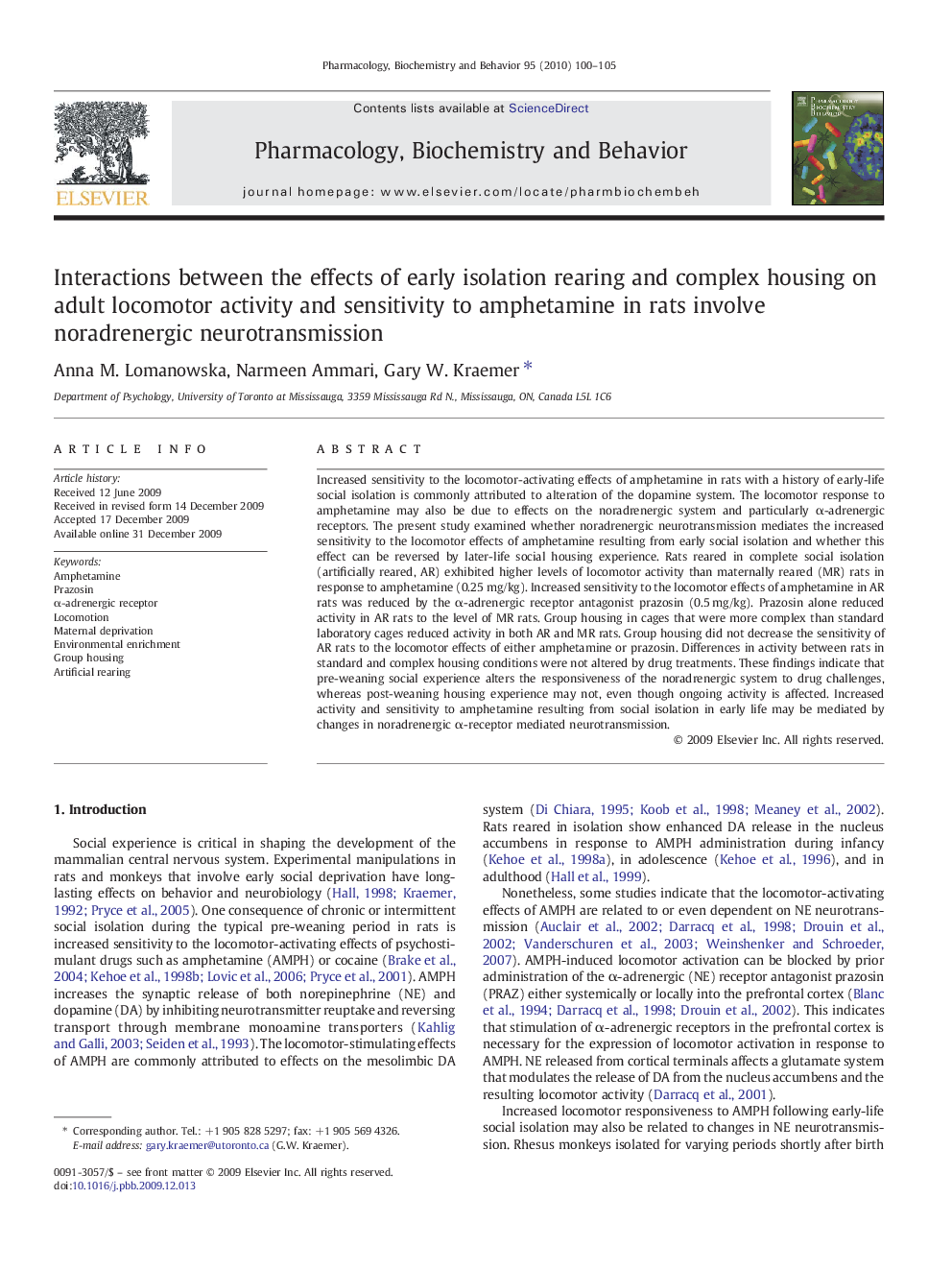| Article ID | Journal | Published Year | Pages | File Type |
|---|---|---|---|---|
| 2013477 | Pharmacology Biochemistry and Behavior | 2010 | 6 Pages |
Increased sensitivity to the locomotor-activating effects of amphetamine in rats with a history of early-life social isolation is commonly attributed to alteration of the dopamine system. The locomotor response to amphetamine may also be due to effects on the noradrenergic system and particularly α-adrenergic receptors. The present study examined whether noradrenergic neurotransmission mediates the increased sensitivity to the locomotor effects of amphetamine resulting from early social isolation and whether this effect can be reversed by later-life social housing experience. Rats reared in complete social isolation (artificially reared, AR) exhibited higher levels of locomotor activity than maternally reared (MR) rats in response to amphetamine (0.25 mg/kg). Increased sensitivity to the locomotor effects of amphetamine in AR rats was reduced by the α-adrenergic receptor antagonist prazosin (0.5 mg/kg). Prazosin alone reduced activity in AR rats to the level of MR rats. Group housing in cages that were more complex than standard laboratory cages reduced activity in both AR and MR rats. Group housing did not decrease the sensitivity of AR rats to the locomotor effects of either amphetamine or prazosin. Differences in activity between rats in standard and complex housing conditions were not altered by drug treatments. These findings indicate that pre-weaning social experience alters the responsiveness of the noradrenergic system to drug challenges, whereas post-weaning housing experience may not, even though ongoing activity is affected. Increased activity and sensitivity to amphetamine resulting from social isolation in early life may be mediated by changes in noradrenergic α-receptor mediated neurotransmission.
